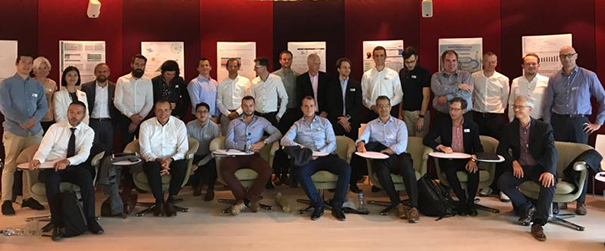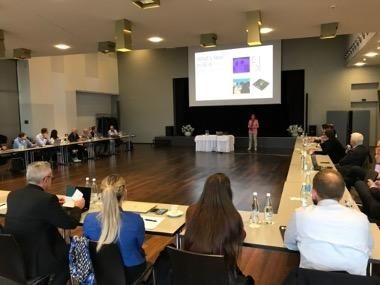Smart services with AI and own data – Service Lunch: „Eating, Learning, Networking“
Online
We provide a platform to share best practice to support the development and commercialization of smart services that are enabled by the use of data.
Smart service focus on the design of new innovative services in both a range of industries, from pure services such as banking to services associated with
products or capital goods in both the B2B and B2C segments. We often focus on understanding the challenges of the ecosystem, the actors, their roles and their individual tasks. From this, we work to find new innovative value propositions and design new business models to support value creation within the ecosystem.
Data can be transformed into information to assist with the development of new services as well as during the delivery of services.
Our partners and members benefit from getting access to this knowledge and experience through a structured innovation process that guides them from the initial challenge to a project proposal to apply for Innosuisse support.
We differentiate between two application scenarios with strong methodological synergies between them:
1. Industrial smart services for business users, typically in production environments
2. Services for human individuals, typically consumers
What do our Industrial Members get from this Expert Group?
We bring these benefits to the members of the Expert Group using different formats such as co-creation in workshops, lunch-seminars, extended conferences and direct bilateral exchanges.
Academic leader: Jürg Meierhofer, Zürich University of Applied Sciences, juerg.meierhofer@zhaw.ch
Industrial leader: Gerrit Schatte, Kistler, gerrit.schatte@kistler.com
Various Innosuisse projects on digital twins and smart service ecosystems:
Digital twin-based services to support decision making along the product life-cycle of capital equipment and in service ecosystems.
With numerous partners from industry and academia
A range of international projects on data-driven services: For example, Interreg projects “Data Sharing Framework” (https://www.data-sharing-framework.eu/).
Many contributions to the databooster topic “Smart Services” (https://databooster.ch/focus-topics/)

Data innovation alliance held in Zurich its fifth Smart Services Summit at Swisscom’s new workspace in Zurich. We had more than 40 attendees at the summit; a good mix from industry and universities. The summit was jointly supported by the ASAP Service Management Forum (Italy).
To get an insight, check out the resulting Springer proceedings of the edition 2021: https://link.springer.com/chapter/10.1007/978-3-030-97042-0_7




21.01.2024: Noah Gunzinger: MYBLUEPLANET Climate Actions App
Past Service Lunches
The successful series of service lunches started late 2017. The format comprises a smart service case presentation by a company during a brown bag lunch and is always accompanied by intense and deeply grounded expert discussions.
The following ebooks encompass the short papers describing the case studies conducted by small groups of students during the CAS (certificate of advanced studies) Smart Service Engineering (Data Product Design) and the course module “Service Engineering” in the “MAS Wirtschftsingenieurwesen” at ZHAW School of Engineering.
The ambition of the courses is to convey the systematic methods of service design and engineering to the participants in a directly applied way in three days. To do so, the classes are split in small working groups at the very start of the course. The groups choose users with a real-world challenge which they want to support by design a new data-driven service during the entire evolution of the course. The case studies are continuously developed across the course.
Download eBook CAS Smart Service Engineering
Download eBook Module Service Engineering MAS Wirtschaftsingenieur

